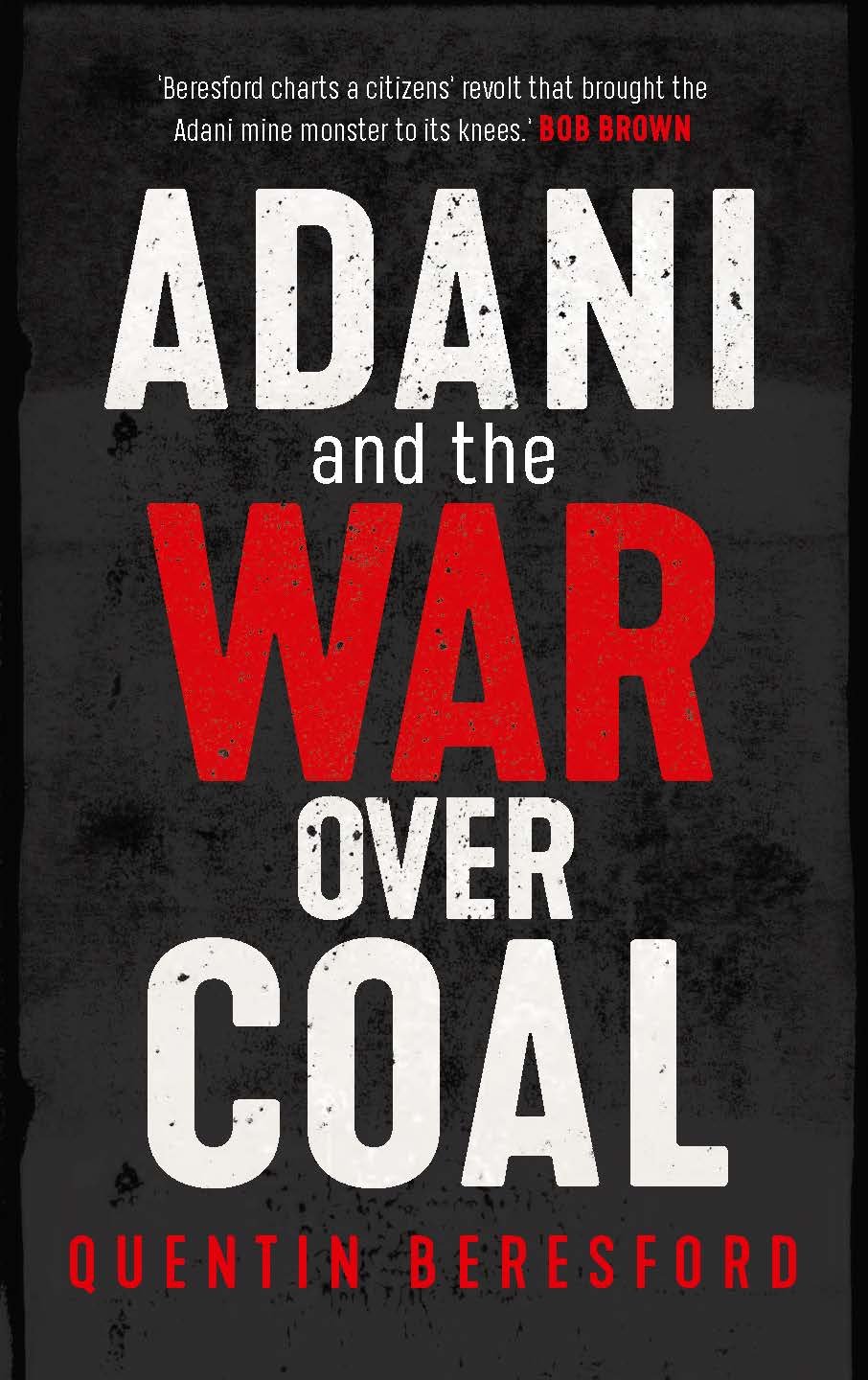There is a war being waged for the future of Australia.
The conflict over the Adani mine in the Galilee Basin in central Queensland has been one of the defining issues in Australian politics over the past eight years. It has pitted a growing people’s movement dedicated to stopping the mine against the mainstream political parties and their backers in the fossil fuel industry. The importance of this story lies in the political fault lines it has exposed: the power of the fossil fuel industry; the corruption of the political process; the struggle over climate policy; and the rights of Indigenous peoples.
The revelation that Prime Minister Scott Morrison appointed a senior executive from the Minerals Council of Australia as his Chief of Staff highlights the ongoing power of the fossil fuel industry in Canberra. But will this appointment give any additional heft to getting the Adani coal mine operational?
In Adani and the War Over Coal I examine how concerned Australians mobilised to challenge the hasty approval process surrounding the mine and the evolution of grassroots political tactics, which has succeeded in denying funding for the mine from all conventional financial institutions. While it is too early to say that the mine will not proceed, the string of victories achieved by the people’s movement against the mine is unprecedented in environmental politics. In the book I position this struggle against the larger story of the geopolitics of coal. The rise of a coal rush in the early 2000s was propelled by increased demand from China and India to locate the last of the world’s untapped coal reserves. This boom occurred against the failure of the international community to forge an effective international agreement to deal with climate change. Global coal-fired power generation doubled in this period and we are now left with a carbon time bomb.
Adani Enterprises has led the way to open up the Galilee Basin. In the book I document the company’s controversial track record in India: the close relationship its founder, Gautam Adani, forged with Prime Minister Narendra Modi and the scandals surrounding its poor environmental practices and financial dealings. The book poses the question: why would Australian governments enthusiastically support a corporation with such a dubious reputation?
The book peels back the layers of institutional corruption that has seen the fossil fuel industry capture the Australian political process. In one of the largest case studies of corruption in Australian politics, the book shows how the major parties have acceded to the agenda of the fossil fuel industry through an interconnected network of power: the rivers of dark money from the industry into the Liberal Party; the revolving door of politicians recruited into the industry and then back to work in government; the role of Australia’s big four banks in bankrolling Australia’s export coal industry; the pro-coal influence exerted by conservative think tanks and the conservative media; and the political power wielded by mining tycoons, acting much like oligarchs.
Against this backdrop of corporate power I explore how the Adani mine was approved in rapid time and the political connections forged along the way. I also show how democratic norms have been debased in the process: lies told about the benefits of the mine; the growth of an ideologically based anti-environmentalism on the conservative side of politics; and the attempts to roll back legal challenges to big development projects.
However, the significance of this story does not lie just in what it tells us about what has gone wrong with our politics, but what millions of Australians have been prepared to do about it.
When I started the project I had written about the power of people over corporations in my book The Rise and Fall of Gunns Ltd. The people of the Tamar Valley in northern Tasmania took their struggle to stop Gunns Ltd from building a world-scale polluting pulp mill in their beautiful region to the nation and helped bring Gunns down.
Trying to stop the Adani mine was on another level of complexity. It wasn’t clear to me that grassroots politics could succeed against such an entrenched network of power at both national and international levels. Yet, as the book reveals, years of struggle by a range of groups caught the public’s imagination and the formation of #Stop Adani brought an unprecedented level of coordination to environmental, climate change and activist groups.
The book documents the evolution of what has become Australia’s largest ever environmental campaign; the tactics, campaigns and personalities that have driven this people’s movement.
As I highlight throughout the book, there is much at stake in this campaign. Stopping Adani has been the focal point for community concerns in an era of climate change, but the larger battles to save the Great Barrier Reef, to phase out Australia’s export coal industry, to adopt effective policies to address climate change and to end the destructive influence of the fossil fuel industry are inextricably linked to the story of Adani.
Quentin Beresford's book Adani and the War Over Coal was published by NewSouth in April 2018.



